
New Thinking, a Center for Court Innovation Podcast
[email protected] (Center for Court Innovation)
New Thinking, a Center for Court Innovation Podcast
- 43 minutes 22 secondsDrug Testing and the Ordeal of Probation
Think of probation as an enormous testing period: will you be able to adhere to the thicket of conditions governing your daily life? Fail at any of them and you could be sent to prison. At the heart of this testing ethos is drug testing: almost all of the almost three million people on probation in the U.S. are drug tested—peeing in a cup, generally under the observation of a probation officer. The tests are time-consuming, expensive, and traumatic. There is also little evidence justifying their use.
Special issue of the Federal Sentencing Reporter on drug testing and supervision
Hear our 12/23 episode: ex-NYC probation commissioner Vinnie Schiraldi calls for probation’s “incremental abolition”
12 November 2024, 3:41 pm - 12 minutes 19 secondsInside Literary Prize: And the Winner Is…
A brief, moving excerpt from the recent award ceremony at the New York Public Library announcing the inaugural winner of the Inside Literary Prize, the first major U.S. book award to be judged exclusively by people who are incarcerated.
Hear from Freedom Reads founder and CEO Reginald Dwayne Betts, and from this year’s winner…
And please be sure to listen to our earlier episode, profiling the work of some of the judges for this prize: ‘Inside Literary Prize: Shakopee Women’s Prison.’
14 August 2024, 7:51 pm - 37 minutes 56 secondsInside Literary Prize: Shakopee Women’s Prison
“They actually care. They want to hear about what we think, the ones that they have shut away.”
The Inside Literary Prize is the first major U.S. book award to be judged exclusively by people who are incarcerated, some of the most prolific readers in the country.
Yet the walls we erect around incarcerated people also disappear them from conversations about culture, politics, and history—conversations to which they can make vital contributions.
In this special episode, hear a behind-the-scenes portrait of what a day of judging sounded like in Minnesota’s Shakopee women’s prison.
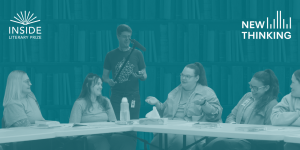 1 August 2024, 5:16 pm
1 August 2024, 5:16 pm - 43 minutes 24 secondsMental Health and Anti-Blackness
What would it mean to decriminalize mental health—to stop criminalizing the symptoms of what is very often untreated mental illness? And what would it mean to put racial justice at the center of that effort? The outcomes of the criminal legal system being what they are, those two questions are really inseparable.
6 May 2024, 5:33 pm - 28 minutes 45 secondsRecriminalization in Oregon
Three years ago, Oregon broke with the War on Drugs, decriminalizing the possession of most illicit drugs. The measure promised instead a “health-based approach.” But the legislature has just ended the short-lived experiment.
The law met stiff headwinds from the start: from the arrival of fentanyl on the West Coast to a relentless opposition campaign.
But part of what went wrong was a challenge for any legislation: implementation. How do you make a sweeping new approach work on the ground?
Morgan Godvin was at the frontlines of Oregon’s decriminalization fight. “We have come to a fork in the road,” she says. For now, progress towards an evidence-based approach to drug use “has fallen prey to fear-based policy.”
19 March 2024, 5:58 pm - 36 minutes 11 secondsGideon at 60: Deconstructing Mass Supervision
Vincent Schiraldi used to run probation in New York City; now he’s asking whether it should even exist. Schiraldi says some of the roots of mass supervision—and its connection to mass incarceration—can be found in a surprising place: the Supreme Court’s 1963 Gideon decision. It recognized, but failed to adequately support, a poor person’s right to a lawyer.
Hear the final episode in our “Gideon at 60” series.
16 December 2023, 8:09 pm - 24 minutes 4 secondsGideon at 60: Uncivil Justice
A profile of the fight to secure lawyers for people facing eviction and the radical impact that is having in Housing Court. With its 1963 Gideon decision, the Supreme Court guaranteed a lawyer to any poor person facing prison time. For criminal cases, the decision was both sweeping and critically incomplete. On the civil side, the campaign for a right-to-counsel is taking a different approach—it’s slow and piecemeal, but it’s also working.
This is the second episode in our series on the legacy of the Gideon decision. Hear the first episode here.
16 November 2023, 4:23 pm - 38 minutes 37 secondsGideon at 60: The Unfunded Mandate
As the legal scholar Paul Butler wrote ten years ago, “On every anniversary of Gideon, liberals bemoan the state of indigent defense.” On this 60th anniversary of the landmark Supreme Court decision granting a lawyer to every poor defendant facing prison time, there is much to bemoan. Yet as the harms of the criminal legal system come into sharper relief, there is a larger question: even if Gideon‘s promise was fulfilled, how much would that change who principally suffers under the current system: the poor and people of color?
 4 April 2023, 10:42 am
4 April 2023, 10:42 am - 58 minutes 57 secondsWhen Young People Go to Prison for Life
April Barber Scales was a pregnant 15-year-old when she received two life sentences; Anthony Willis was 16 when he was sent away for life. After more than 25 years behind bars, they each received something desperately rare: clemency. They describe how they fought against a prison system that “sets you up for failure.” We also hear from an organization in Baltimore that works exclusively with young people at high risk of violence. Rather than arrests and incarceration, what do these young people need?
 14 February 2023, 7:38 pm
14 February 2023, 7:38 pm - 27 minutes 15 secondsEmphasizing the Harms
A recent two-day training for Manhattan prosecutors was a drumbeat on the harms of incarceration; hardly the typical message prosecutors receive. The training was part of a wider effort by D.A. Alvin Bragg to expand the use of alternatives such as treatment and restorative justice. But in a newly cramped climate for criminal justice reform, can that effort become a reality?
4 November 2022, 6:56 pm - 20 minutes 1 secondEvicting Evictions
Housing is a human right. What if we designed our systems—beginning with Housing Court—to embody that? Given the current eviction crisis, it’s a far-off concept, but there’s work to make it a reality in pockets across the country. In this special episode, hear a profile of one of those efforts in a Brooklyn neighborhood.
28 June 2022, 8:06 pm - More Episodes? Get the App
Your feedback is valuable to us. Should you encounter any bugs, glitches, lack of functionality or other problems, please email us on [email protected] or join Moon.FM Telegram Group where you can talk directly to the dev team who are happy to answer any queries.
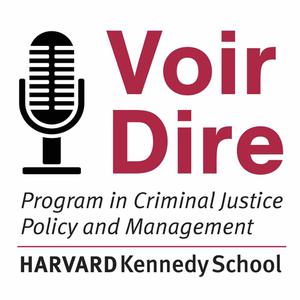 Voir Dire: Conversations from the Harvard Kennedy School Program in Criminal Justice Policy and Management
Voir Dire: Conversations from the Harvard Kennedy School Program in Criminal Justice Policy and Management
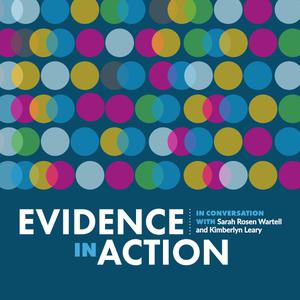 Evidence In Action
Evidence In Action
 The Appeal
The Appeal
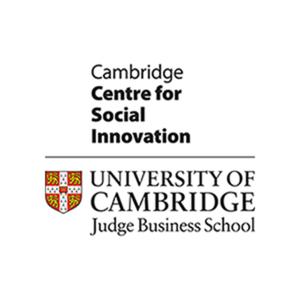 Social Innovation: The Social Ideas Podcast
Social Innovation: The Social Ideas Podcast
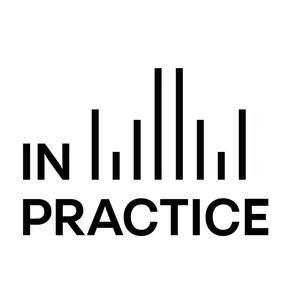 In Practice, a Center for Court Innovation podcast
In Practice, a Center for Court Innovation podcast
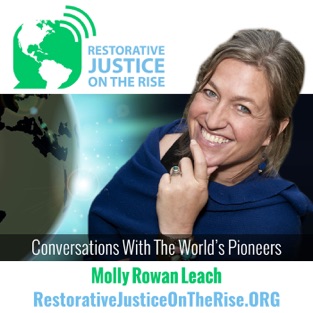 Restorative Justice On The Rise
Restorative Justice On The Rise